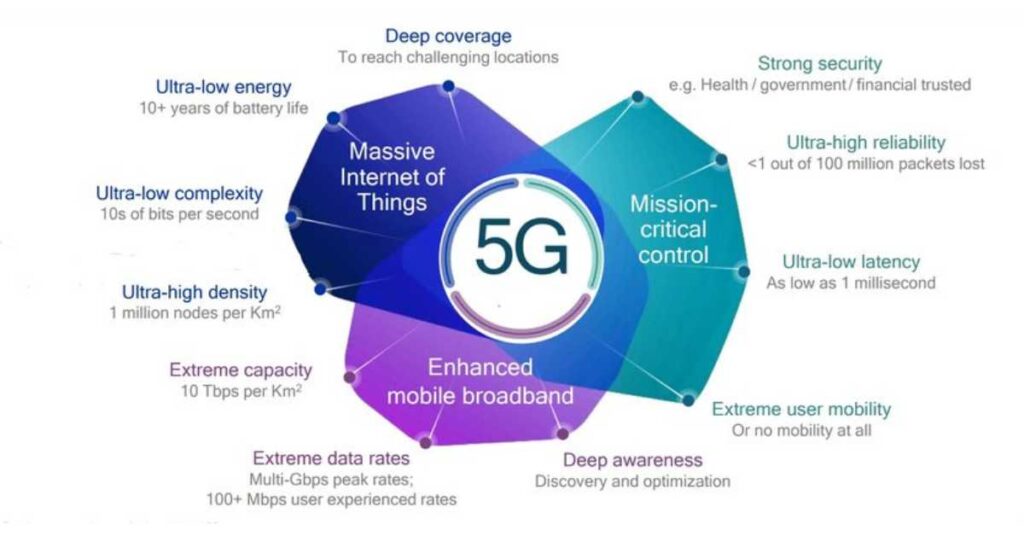Email: [email protected]


The advent of 5G network technology revolutionizes communication, work, and life, marking a significant milestone in mobile technology evolution. With ultra-fast speeds, low latency, and massive connectivity, 5G transforms industries and societies, enabling unprecedented efficiency, productivity, and innovation. 5G unlocks new possibilities in healthcare, education, transportation, and entertainment, among others. As 5G networks roll out globally, exploring opportunities and challenges is crucial.
Key aspects include enhanced mobile broadband, massive machine-type communications, and ultra-reliable low-latency communications. Addressing infrastructure upgrades, security, and regulatory frameworks ensures seamless and widespread 5G adoption, shaping the future of wireless technology.
The adoption of 5G network technology presents numerous opportunities across industries and aspects of life. Key benefits include:
The adoption of 5G network technology brings numerous benefits, transforming the way we live, work, and communicate. Key advantages include:
The adoption of 5G network technology poses several challenges that must be addressed. Key challenges include:
Click on the next page button to continue enjoying the article!












Don’t miss our future updates! Get Subscribed Today!
©2024. Inform. All Rights Reserved.
To provide the best experiences, we and our partners use technologies like cookies to store and/or access device information. Consenting to these technologies will allow us and our partners to process personal data such as browsing behavior or unique IDs on this site and show (non-) personalized ads. Not consenting or withdrawing consent, may adversely affect certain features and functions.
Click below to consent to the above or make granular choices. Your choices will be applied to this site only. You can change your settings at any time, including withdrawing your consent, by using the toggles on the Cookie Policy, or by clicking on the manage consent button at the bottom of the screen.
